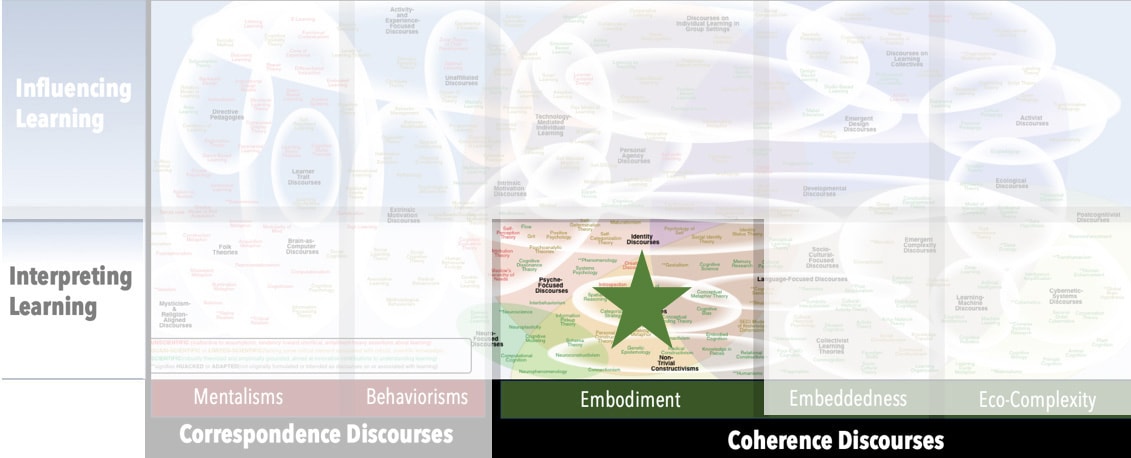Focus
Empirical research into subjective experiencePrincipal Metaphors
- Knowledge is … scope of possible experiences and meanings
- Knowing is … meaning (and other higher-order cognitive functions)
- Learner is … a conscious experiencer
- Learning is … meaning-making (and other brain-based, systemic changes)
- Teaching is … prompting reflection of meaning-making
Originated
1990sSynopsis
Neurophenomenology combines Neuroscience (the study of the brain, from a third-person perspective) with Phenomenology (the study of conscious experience, from a first-person perspective). It figures prominently in many contemporary theories of learning. Subdiscourses include:- Biogenetic Structuralism (Charles Laughlin, Eugene d’Aquili, 1990s) – a blend of Structuralism and Neuroscience, with the intention to better understand sites and manifestations of human knowing and knowledge, such as ritual, myth, religion, science, and consciousness. Subdiscourses include:
- Neurognosis (Charles Laughlin, 1990s) – the complex of genetically determined neural structures – or any relevant aspect of that complex – that frames/enables/constitutes the cognitive experiences of the fetus and newborn
Commentary
Issues cited in relation to both Neuroscience and Phenomenology apply to Neurophenomenology.Authors and/or Prominent Influences
Francisco Varela; Antonio DamasioStatus as a Theory of Learning
Neurophenomenology is perhaps better described in terms of the scientific study of learning than a theory of learning.Status as a Theory of Teaching
Neurophenomenology is not a theory of teaching.Status as a Scientific Theory
Neurophenomenology is a relatively recent domain, but it derives from two well-established research fields.Subdiscourses:
- Biogenetic Structuralism
- Neurognosis
Map Location

Please cite this article as:
Davis, B., & Francis, K. (2022). “Neurophenomenology” in Discourses on Learning in Education. https://learningdiscourses.com.
⇦ Back to Map
⇦ Back to List
